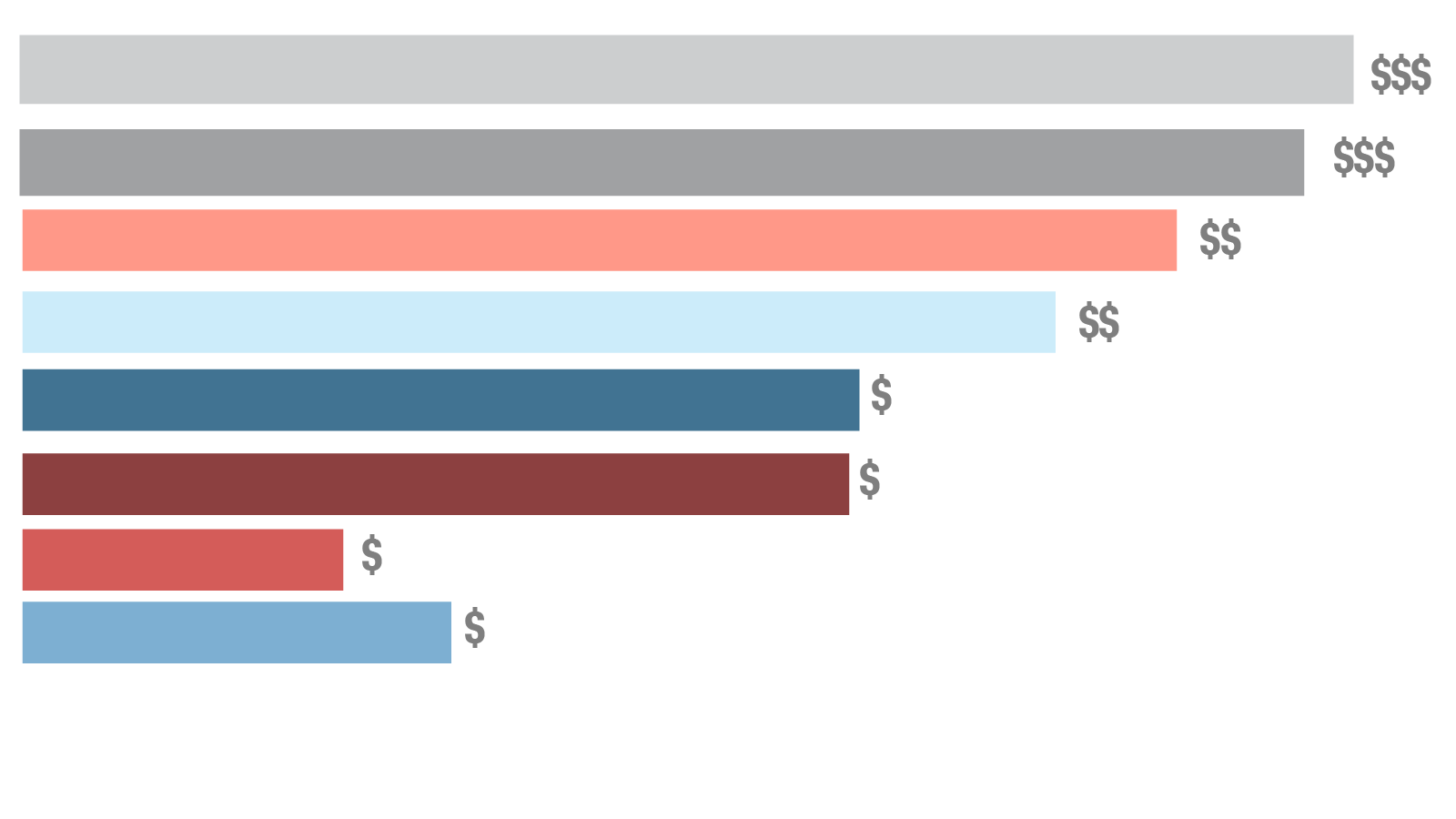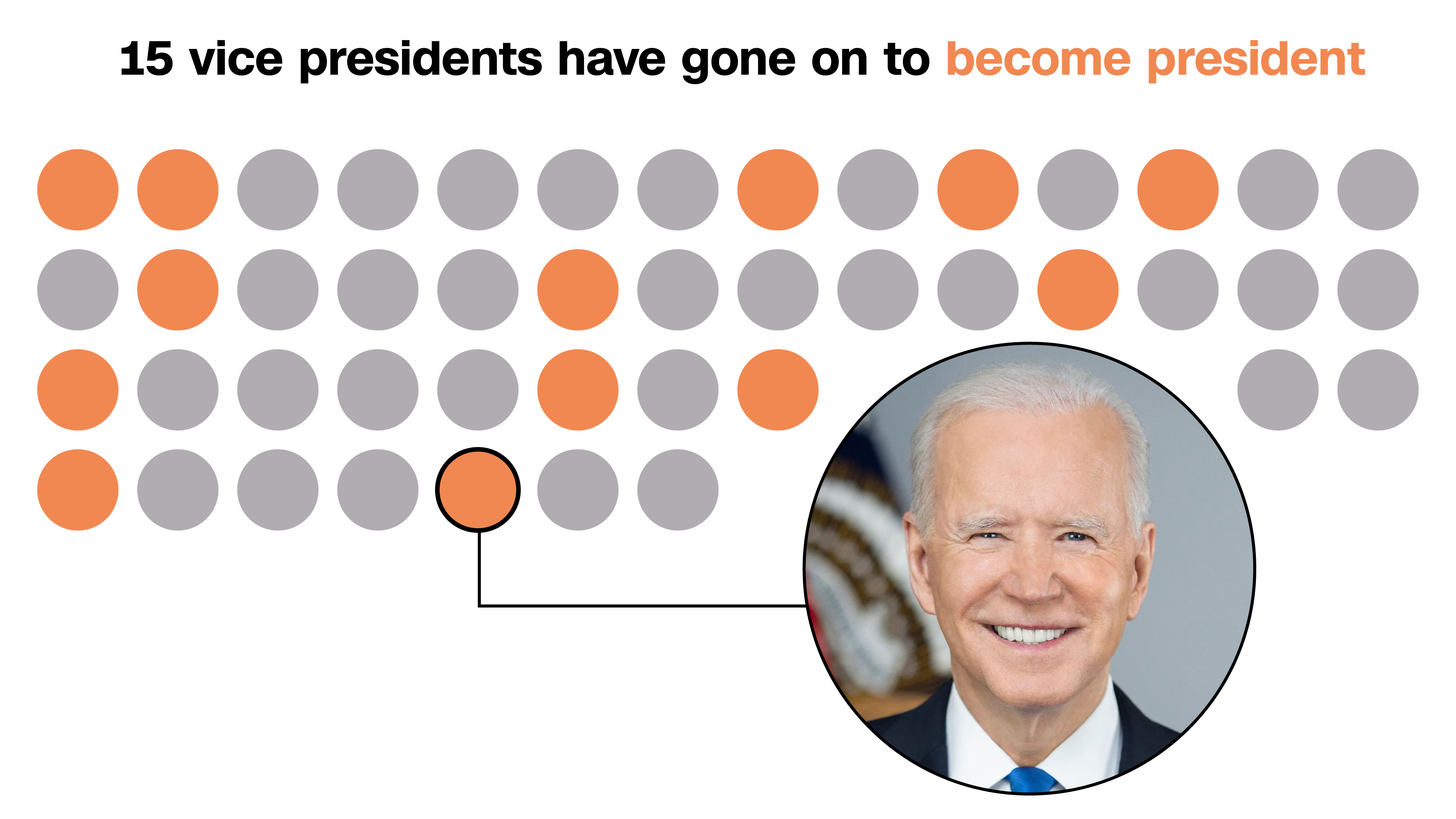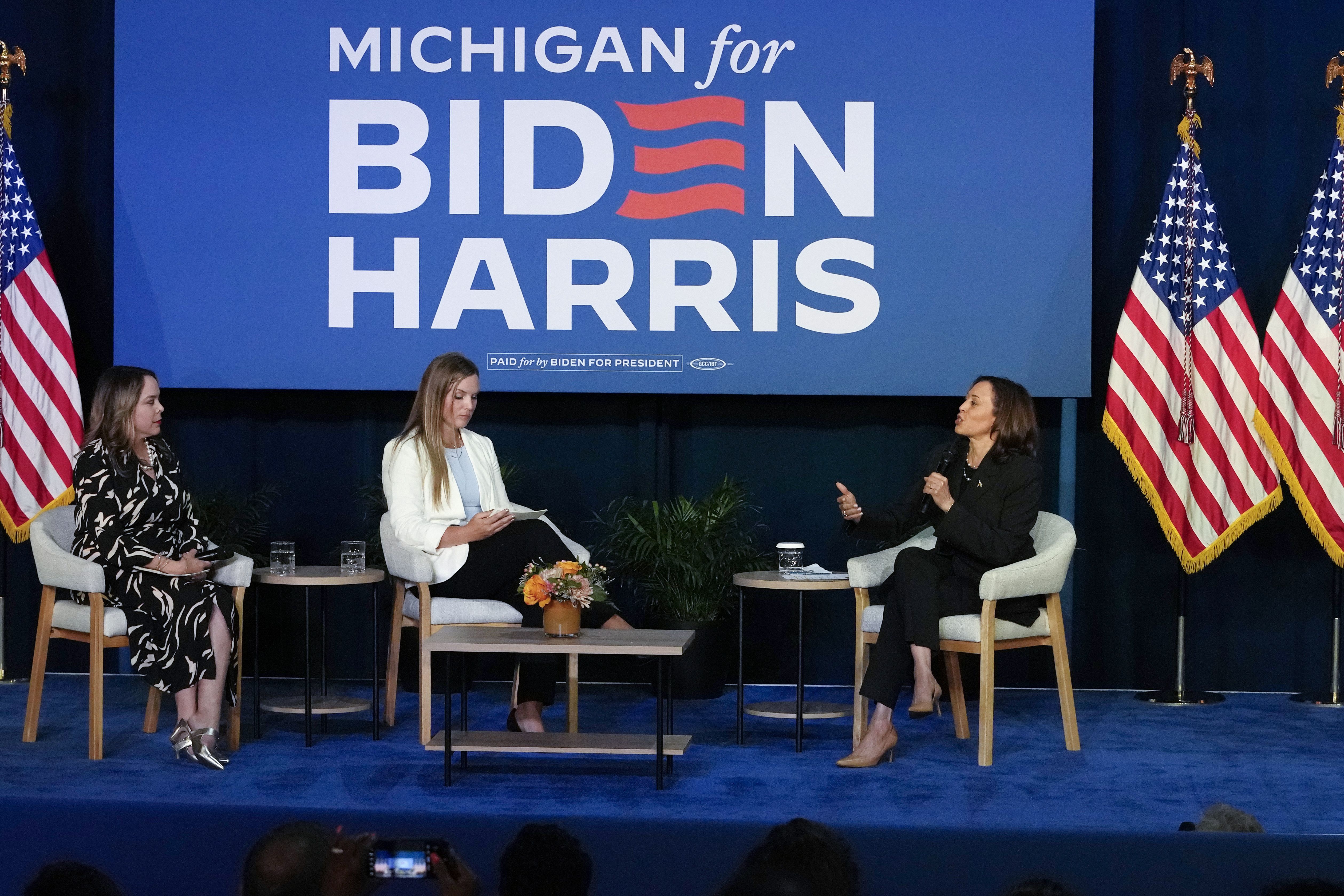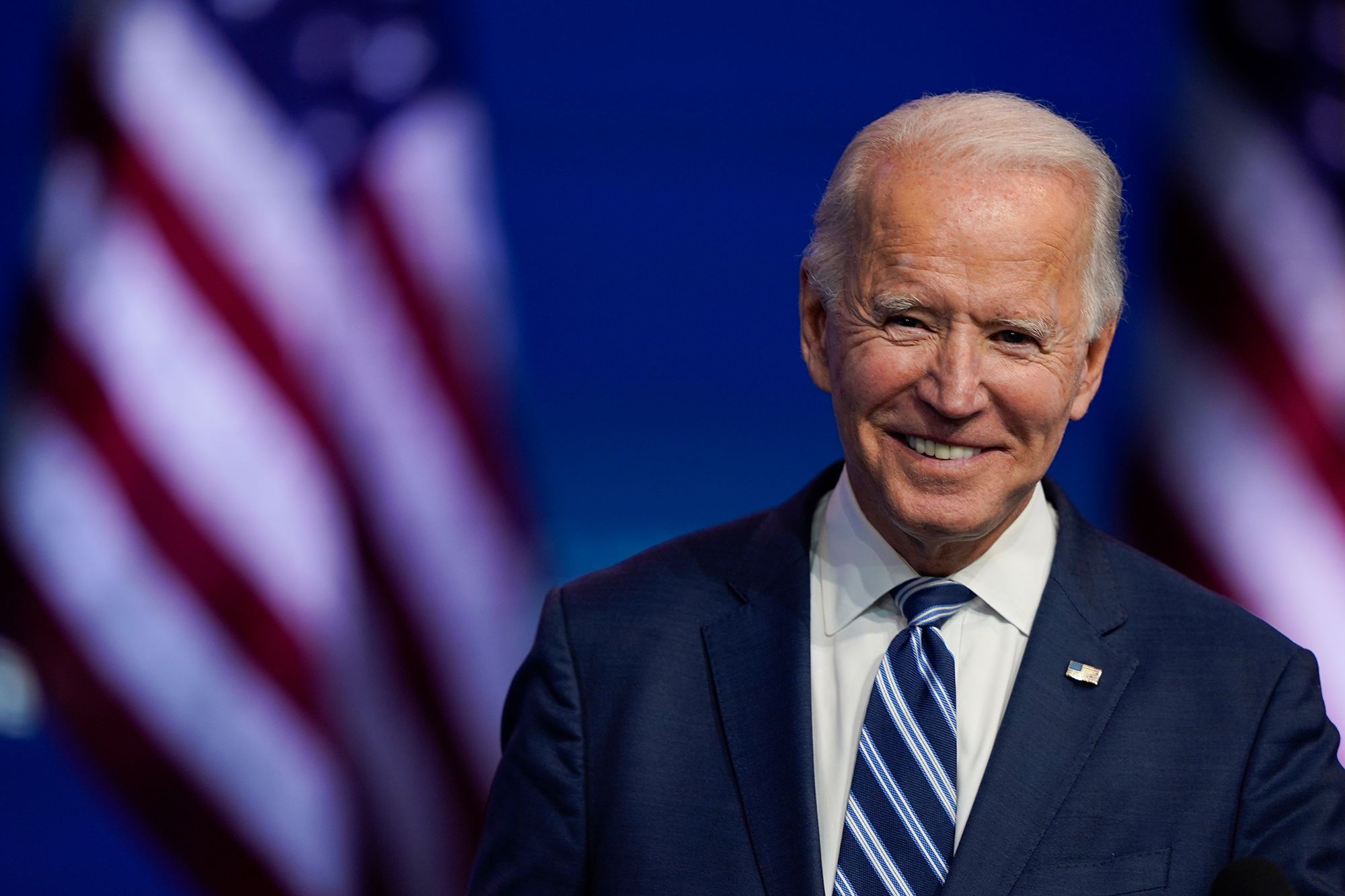Promises Kamala Harris has made so far in her campaign
Editor's Note: CNN's What Matters newsletter connects the dots of the ever-changing political landscape. Click here to sign up for free.
During her shortened 2024 presidential campaign, Vice President Kamala Harris has crisscrossed the country unveiling how she will address the key issues facing the nation.
In policy proposals, speeches and rallies, she has offered a wide range of ideas aimed at making life more affordable for Americans and promoting a forward-looking vision of “an opportunity economy” that focuses on strengthening the middle class. However, she has not provided many details on her plans, which she has said she’d pay for largely by raising taxes on the wealthy and big companies.
Many of her proposals continue measures put forth by the Biden administration, such as providing tax relief to middle-class and lower-income families, lowering drug costs and making housing more affordable. Like President Joe Biden, she has vowed to protect reproductive freedom and secure the border.
But Harris has aimed to put her own stamp and style on matters ranging from abortion to the economy to immigration – trying to walk a fine line of taking credit for the administration’s accomplishments while not being jointly blamed by voters for its shortcomings. The vice president has also made it clear that she has her own views on some key matters, particularly Israel’s treatment of Gazans in its war with Hamas. And she’s said she may go further than Biden in cracking down on asylum claims.
Harris has also stressed on the campaign trail that she is a capitalist, as she moves away from some of her more notable progressive stances from her 2020 presidential run, such as her interest in a single-payer health insurance system and a ban on fracking.
And she has repeatedly sought to contrast her vision for America with that of former President Donald Trump. (See Trump’s campaign promises here.)
“In this moment, I believe we face a choice between two different visions for our nation: one focused on the future, the other focused on the past,” she told members of the historically Black sorority Zeta Phi Beta at an event in Indianapolis in late July. “And with your support, I am fighting for our nation’s future.”
Here’s what we know about Harris’ views:
Economy
High prices are a top concern for many Americans who are struggling to afford the cost of living after a spell of steep inflation. Many voters give Biden poor marks for his handling of the economy, and Harris may also face their wrath.
Harris has talked about the key pillars of her economic vision – particularly strengthening the middle class – on the campaign trail and in an 82-page policy paper that the campaign released in late September. However, she has not provided many details on her proposals.
As part of her economic agenda, Harris wants to counter the increase in food costs, which she argues stems in part from some big grocery chains that are keeping prices high even though their production costs have leveled off.
To do so, she is calling for the first-ever federal ban on price gouging on food and groceries. The policy paper specified that the ban would be aimed at big corporations unfairly exploiting consumers during crises and emergencies to increase their profits and compared Harris’ idea to similar price-gouging bans already in place in 37 states, including Texas and Florida.
Harris would also secure new authority for the Federal Trade Commission and state attorneys general to investigate and penalize companies that unfairly exploit consumers in the quest for excessive profits on food and groceries.
Also, she has proposed increasing a tax deduction for new small businesses to $50,000, up from $5,000. Plus, she would take several steps to cut the red tape that small businesses face, including creating a standard deduction for them and making it easier for them to operate across state lines.
Harris is also looking to help Black and Latino entrepreneurs and others by providing 1 million fully forgivable loans of up to $20,000 to start or grow a business.
The vice president has also pledged to strengthen the manufacturing sector by creating a new “America Forward” tax credit. It would be targeted at investment and job creation in key strategic industries, according to the policy paper, which mentions steel and iron, biotechnology, artificial intelligence, semiconductors, aerospace, autos and farming. Her investments in American innovation would cost about $100 billion and would be paid for by international tax reform, which Congress must approve.
“We will prioritize investments for strengthening factory towns, retooling existing factories, hiring locally and working with unions because no one that grows up in America's greatest industrial or agricultural centers should be abandoned,” she said during a late September speech in Pittsburgh.
Plus, Harris said she’d double the number of registered apprenticeships by the end of her first term, as well as increase skills-based hiring and eliminate degree requirements.
Her platform also calls for boosting investment in community development financial institutions, or CDFIs, which are dedicated to serving low-income people and communities that are missed by traditional lenders.
Harris has also committed to raising the federal minimum wage to $15 an hour, in keeping with a long-standing Democratic goal. The federal minimum wage has been $7.25 since 2009.
In her campaign speeches, Harris has echoed many of the same economic themes as Biden, saying she wants to give Americans more opportunities to get ahead.
She promised at a late July rally to continue the Biden administration’s drive to eliminate so-called junk fees and to fully disclose all charges, such as for events, lodging and car rentals.
On day one, I will take on price gouging and bring down costs. We will ban more of those hidden fees and surprise late charges that banks and other companies use to pad their profits.”
Taxes
Harris has proposed using tax credits to provide relief to middle class and lower-income Americans. Her plan revives or extends temporary measures that Biden and congressional Democrats enacted in major packages when the party controlled Congress during the first two years of Biden’s term.
Harris’ proposal would restore the American Rescue Plan’s popular expansion of the child tax credit to as much as $3,600, up from $2,000, and call for it to be made permanent. The enhancement was only in effect in 2021.
Her plan would restore the American Rescue Plan’s enhancement of the earned income tax credit, known as the EITC, which increased the maximum credit for workers without dependent children to roughly $1,500. That previous boost was only for 2021.
Plus, the proposal would also add a new child tax credit of up to $6,000 for middle-class and lower-income families with children in their first year of life.
There's one more way I will help families deal with rising costs, and that's by letting you keep more of your hard-earned money.”
And Harris has also promised to end federal income taxes on tips, sparking Trump’s ire that she is copying his campaign promise. Tips would remain subject to payroll taxes under Harris’ plan.
To help pay for these and other measures on her wish list, Harris would raise the corporate tax rate to 28%, up from the current 21% rate set by Trump’s 2017 Tax Cuts and Jobs Act. Doing so would raise about $1 trillion over the next decade, according to the Committee for a Responsible Federal Budget.
The vice president also wants to raise the long-term capital gains rate to 28%, up from the current 20% rate, for those earning more than $1 million. That’s a break from Biden’s proposal to increase the capital gains rate to the top rate he wants to levy on ordinary income – 39.6%. High earners are also subject to an additional 3.8% net investment income tax, which Biden wants to lift to 5%.
Harris also said she supports Biden’s Billionaire Minimum Income Tax proposal, which seeks to ensure that those worth more than $100 million pay a federal income tax rate of at least 25% on their income – including unrealized gains on assets, which are not currently taxed.
Plus, she is in favor of quadrupling the tax on stock buybacks to 4%, as the president proposed in his fiscal year 2025 budget.
Housing
Harris has rolled out a three-section plan aimed at addressing the nation’s housing shortage. Parts of it build on proposals that Biden has already unveiled.
The vice president’s plan promises to provide up to $25,000 in down-payment support for first-time homebuyers. The down-payment support would apply to working families who have paid rent on time for two years, with more generous support for first-time homebuyers. The plan would also provide a $10,000 tax credit for first-time homebuyers, something Biden proposed earlier this year.
The plan would allow for more than 1 million first-time buyers per year, including first-generation homebuyers, to access the funds, according to her campaign.
Harris is also calling for the building of 3 million new housing units. To spur construction, she would provide a first-ever tax incentive for builders who build starter homes sold to first-time buyers. She also would expand an existing tax incentive for building affordable rental housing.
By the end of my first term, we will end America's housing shortage by building 3 million new homes and rentals that are affordable for the middle class.”
The plan also highlights two main proposals that aim to lower rent costs in the US. The first would block landlords from using algorithm-driven price-setting tools to set rents. The second would discourage wealthy investors from buying up properties and marking up rents in bulk by removing tax benefits for investors who buy large numbers of single-family rental homes.
Health care
Harris’ health care platform builds on the Biden administration’s efforts to reduce prescription drug costs.
She is calling to expand the current $35 monthly cap on out-of-pocket costs for insulin and the upcoming $2,000 annual limit on out-of-pocket costs for prescription drugs generally to all Americans, not just Medicare enrollees. These caps were put in place for those on Medicare in the Inflation Reduction Act. The $2,000 limit on Medicare Part D drug costs takes effect in January.
(The three major insulin manufacturers in the US offer price caps or savings programs that lower the cost of insulin to $35 for many patients – a move Biden pushed for in his State of the Union address last year.)
Harris’ plan would also accelerate the speed of Medicare’s drug price negotiations so that the costs of more medications come down faster. The Biden administration just announced the results of the first-ever round of negotiations, which is expected to result in $6 billion in savings for Medicare and a $1.5 billion reduction in out-of-pocket costs for seniors when the lower prices take effect in 2026.
The vice president would use some of that savings to establish a Medicare at Home program, which would provide home health aides to enrollees who cannot independently handle activities of daily living, such as bathing and eating. In addition, Harris is proposing that Medicare cover hearing aids and exams, eye exams, and new glasses and lenses.
Also, as part of her plan to help rural communities, Harris would recruit 10,000 health care professionals by expanding scholarships, loan forgiveness and other programs for doctors and nurses who will work in rural and tribal areas. In addition, she would launch a new grant program to train and fund community health workers in rural areas and expand grants to community and rural health centers.
Harris also supports expanding rural telehealth services by permanently extending Medicare coverage of telehealth benefits and by doubling federal funding for telehealth equipment and technology.
Plus, she is calling to reduce the number of “ambulance deserts” by increasing funding and technical support for emergency medical technicians and first responders, as well as providing more resources for ambulances, lifesaving equipment and first-responder stations. And she would give grants to volunteer ambulance programs.
Consumer debt
Hefty debt loads, which weigh on people’s finances and hurt their ability to buy homes, get car loans or start small businesses, are also an area of interest to Harris.
In her economic plan, she pledged to work with states to cancel medical debt for millions of Americans and help them avoid falling behind on health care bills in the future. States and municipalities have used American Rescue Plan funds to cancel $7 billion of medical debt for up to 3 million Americans, according to the campaign.
Harris has been a leader in the White House’s efforts to ban medical debt from credit reports, noting that those with medical debt are no less likely to repay a loan than those who don’t have unpaid medical bills.
Also, as vice president, she has promoted the Biden administration’s initiatives on student debt, which have so far approved more than $175 billion of student loan forgiveness for nearly 5 million people. “We are fighting, and I’m going to continue to fight for student debt relief,” Harris said during an interview in early October.
A potential Harris administration could keep that momentum going – though some of Biden’s efforts have gotten tangled up in litigation, such as a repayment plan that lowers monthly payments and shortens the time it takes to receive student loan relief.
Abortion
Harris took on the lead role of championing abortion rights for the administration after Roe v. Wade was overturned in June 2022. This past January, she started a “reproductive freedoms tour” to multiple states, including a stop in Minnesota thought to be the first by a sitting US president or vice president at an abortion clinic.
On abortion access, Harris embraced more progressive policies than Biden in the 2020 campaign, as a candidate criticizing his previous support for the Hyde Amendment, a measure that blocks federal funds from being used for most abortions.
Policy experts suggested that although Harris’ current policies on abortion and reproductive rights may not differ significantly from Biden’s, as a result of her national tour and her own focus on maternal health, she may be a stronger messenger.
Climate
Harris has been a champion on climate and environmental justice for decades. As California’s attorney general, Harris sued big oil companies like BP and ConocoPhillips, and investigated Exxon Mobil for its role in climate change disinformation. While in the Senate, she sponsored the Green New Deal resolution.
During her 2020 campaign, she enthusiastically supported a ban on fracking — but a Harris campaign official said in late July that she no longer supports such a ban.
Fracking is the process of using liquid to free natural gas from rock formations – and the primary mode for extracting gas for energy in battleground Pennsylvania. During a September 2019 climate crisis town hall hosted by CNN, she said she would start “with what we can do on Day 1 around public lands.” She walked that back later when she became Biden’s running mate.
Biden has been the most pro-climate president in history, and climate advocates find Harris to be an exciting candidate in her own right. Democrats and climate activists are planning to campaign on the stark contrasts between Harris and Trump, who vowed to push America decisively back to fossil fuels, promising to unwind Biden’s climate and clean energy legacy and pull America out of its global climate commitments.
If elected, one of the biggest climate goals Harris would have to craft early in her administration is how much the US would reduce its climate pollution by 2035 – a requirement of the Paris climate agreement.
Immigration
Harris has repeatedly tried to counter Trump’s attacks on her immigration record.
Her campaign released a video in late July citing Harris’ support for increasing the number of Border Patrol agents, and she has often called out Trump’s successful push to scuttle a bipartisan immigration deal that included some of the toughest border security measures in recent memory.
The vice president has changed her position on border control since her 2020 campaign, when she suggested that Democrats needed to “critically examine” the role of Immigration and Customs Enforcement, or ICE, after being asked whether she sided with those in the party arguing to abolish the department.
In June of this year, the White House announced a crackdown on asylum claims meant to continue reducing crossings at the US-Mexico border. Harris has said that she would maintain Biden’s crackdown on asylum claims – and potentially go further.
Trump’s attacks stem from Biden having tasked Harris with overseeing diplomatic efforts in Central America in March 2021. While Harris focused on long-term fixes, the Department of Homeland Security remained responsible for overseeing border security.
She has only occasionally talked about her efforts as the situation along the US-Mexico border became a political vulnerability for Biden. But she put her own stamp on the administration’s efforts, engaging the private sector.
Harris pulled together the Partnership for Central America, which has acted as a liaison between companies and the US government. Her team and the partnership are closely coordinating on initiatives that have led to job creation in the region. Harris has also engaged directly with foreign leaders in the region.
Experts credit Harris’ ability to secure private-sector investments as her most visible action in the region to date but have cautioned about the long-term durability of those investments.
Israel-Hamas
The Israel-Hamas war is the most fraught foreign policy issue facing the country and has spurred a multitude of protests around the US since it began in October 2023.
After meeting with Israeli Prime Minister Benjamin Netanyahu in late July, Harris gave a forceful and notable speech about the situation in Gaza. She echoed Biden’s repeated comments about the “ironclad support” and “unwavering commitment” to Israel, as well as the need to get the Israeli hostages back from Hamas captivity. The country has a right to defend itself, she said, while noting, “how it does so, matters.”
However, the empathy she expressed regarding the Palestinian plight and suffering was far more forceful than what Biden has said on the matter in recent months. Harris mentioned twice the “serious concern” she expressed to Netanyahu about the civilian deaths in Gaza, the humanitarian situation and destruction she called “catastrophic” and “devastating.”
She went on to describe “the images of dead children and desperate hungry people fleeing for safety, sometimes displaced for the second, third or fourth time,” and said, “I will not be silent.”
But when describing the ceasefire deal in the works, she didn’t highlight the hostage for prisoner exchange or aid to be let into Gaza. Instead, she singled out the fact that the deal stipulates the withdrawal by the Israeli military from populated areas in the first phase before withdrawing “entirely” from Gaza before “a permanent end to the hostilities.”
Harris didn’t preside over Netanyahu’s speech to Congress in late July, instead choosing to stick with a prescheduled trip to a sorority event in Indiana.
The vice president continued calling out the plight of the people in Gaza, as well as the need to free the Israeli hostages and secure a ceasefire deal, in her acceptance speech at the Democratic National Convention in August.
President Biden and I are working to end this war such that Israel is secure, the hostages are released, the suffering in Gaza ends and the Palestinian people can realize their right to dignity, security, freedom and self-determination.”
Ukraine
Harris is committed to supporting Ukraine in its fight against Russian aggression, having met with Ukrainian President Volodymyr Zelensky at least six times and announcing earlier this year $1.5 billion for energy assistance, humanitarian needs and other aid for the war-torn country.
At the Munich Security Conference earlier this year, Harris said: “I will make clear President Joe Biden and I stand with Ukraine. In partnership with supportive, bipartisan majorities in both houses of the United States Congress, we will work to secure critical weapons and resources that Ukraine so badly needs. And let me be clear: The failure to do so would be a gift to Vladimir Putin.”
More broadly, NATO is central to our approach to global security. For President Biden and me, our sacred commitment to NATO remains ironclad. And I do believe, as I have said before, NATO is the greatest military alliance the world has ever known.”
Police funding
The Harris campaign has also walked back the “defund the police” sentiment that Harris voiced in 2020. What she meant is she supports being “tough and smart on crime,” Mitch Landrieu, national co-chair for the Harris campaign and former mayor of New Orleans, told CNN’s Pamela Brown in late July.
In the midst of nationwide 2020 protests sparked by George Floyd’s murder by a Minneapolis police officer, Harris voiced support for the “defund the police” movement, which argues for redirecting funds from law enforcement to social services. Throughout that summer, Harris supported the movement and called for demilitarizing police departments.
Democrats largely backed away from calls to defund the police after Republicans attempted to tie the movement to increases in crime during the 2022 midterm elections.








